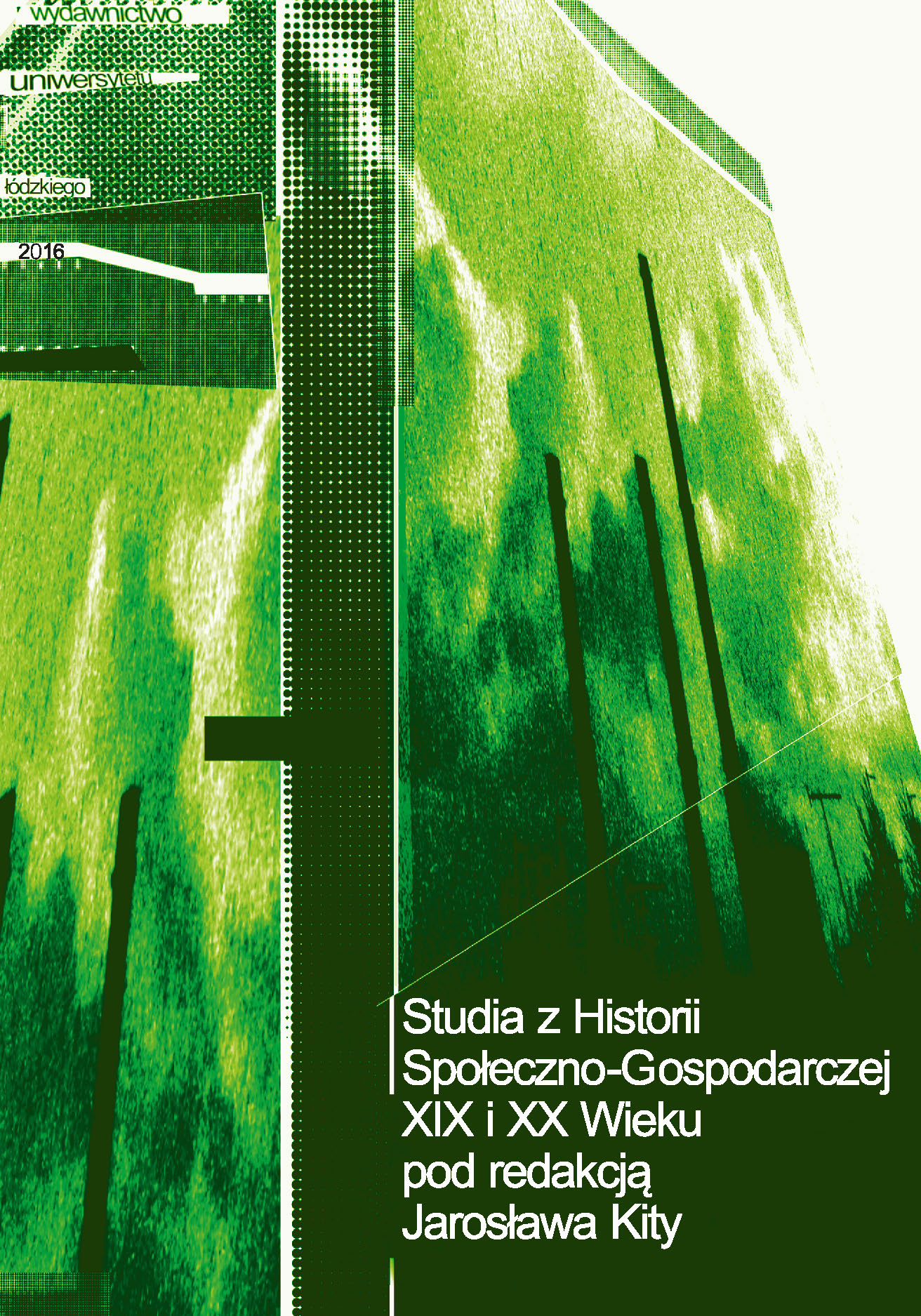“Catechism for six cents...” Cardinal Jan Puzyna towards the social issues
DOI:
https://doi.org/10.18778/2080-8313.16.05Keywords:
social issue, the Catholic Church, cardinalAbstract
In the polish historiography of the nineteenth century the Catholic hierarchs are seen primarily as representatives of the conservative authorities, inhibiting the development of new forms of social life. In fact, with few exceptions, changes in the relations between social classes and within each of them, have been taking by them with a strong reserve, and even resentment. In the most expressive way it was reflected in relation to the situation of the lower social classes, that in the second half of the century, begun to occupy an important place in the arena of European civilization’s transformation. In this context, an interesting example would be for researchers activities of Jan Puzyna, prince, bishop and cardinal. The controversy, which over the years has been accumulated around his person, caused that today is identified of the most negative features of Polish Catholicism. However, while the creation of such assessments, has its justification in the essence of collective memory, it is the duty of the historian to verify it.
References
Archiwum Kapituły Katedralnej w Krakowie.
Google Scholar
Archiwum Kurii Metropolitarnej w Krakowie.
Google Scholar
Archiwum Zgromadzenia Zmartwychwstańców w Rzymie.
Google Scholar
Chłędowski K., Pamiętniki, t. 1: Galicja (1843–1880), Wrocław 1951.
Google Scholar
Chwalba A., Historia Polski 1795–1918, Kraków 2000.
Google Scholar
Chwalba A., Czy Galicji sukces był pisany? Cywilizacja przemysłowa 1880–1914, [w:] Kraków i Galicja wobec przemian cywilizacyjnych (1866–1914). Studia i szkice, red. K. Fiołek, M. Stala, Kraków 2011.
Google Scholar
Chwalba A., Sacrum i rewolucja. Socjaliści polscy wobec praktyk i symboli religijnych (1870–1918), Kraków 2007.
Google Scholar
Dzwonkowski R., Listy społeczne biskupów polskich 1891–1918, Paryż 1974.
Google Scholar
Komar E., Kardynał Puzyna (moje wspomnienia), Kraków 1912.
Google Scholar
Kracik J., Puzyna Jan Duklan Maurycy Paweł (1842–1911), [w:] Polski Słownik Biograficzny, t. 29, 1986 – wersja internetowa (Internetowy Polski Słownik Biograficzny): http://www.ipsb.nina.gov.pl/a/biografia/jan-duklan-maurycy-pawel-puzyna (dostęp: 29 XI 2016).
Google Scholar
Kudłaszyk A., Ksiądz Stanisław Stojałowski. Studium historyczno-prawne, Wrocław 1998.
Google Scholar
Latos T., Stojałowski Stanisław (1845–1911), [w:] Polski Słownik Biograficzny, t. 44, 2006–2007.
Google Scholar
Łuczewski M., Odwieczny naród. Polak i katolik w Żmiącej, Toruń 2012.
Google Scholar
Łuczewski M., Ultramontańskie źródła ruchu ludowego. Studium realizmu politycznego, [w:] Patriotyzm i zdrada. Granice realizmu i idealizmu w polityce i myśli polskiej, red. J. Kloczkowski, M. Szułdrzyński, Kraków 2008.
Google Scholar
Marchel S., „…wychowywać tęgich o gorącej duszy a rozumnych Księży…”. Relacje kardynała Jana Puzyny ze Zmartwychwstańcami w świetle wybranej korespondencji, „Zeszyty Historyczno-Teologiczne. Rocznik Zmartwychwstańców” 2015, nr 21.
Google Scholar
Mylik M., Ksiądz Stefan Pawlicki CR (1839–1916), Niepokalanów 1992.
Google Scholar
Piech S., Katedra chrześcijańskiej nauki społecznej na Uniwersytecie Jagiellońskim, „Folia Historica Cracoviensia” 1989, nr 1.
Google Scholar
Szlachta B., Ład. Kościół. Naród, Kraków 1996.
Google Scholar
Szymański Ł., Powstanie i rozwój ruchu ludowego w Galicji na przełomie XIX i XX wieku, [w:] Ze studiów nad prawem, administracją i ekonomią, red. M. Sadowski, Wrocław 2014 – artykuł dostępny w sieci Internet: http://www.bibliotekacyfrowa.pl/Content/51955/05_Lukasz_Szymanski.pdf (dostęp: 30 XI 2016).
Google Scholar
Wołczański J., Lwowska sufragania Jana Puzyny w opinii biskupa Leona Wałęgi, „Analecta Cracoviensia” 1998–1999, nr 30–31.
Google Scholar
Downloads
Published
How to Cite
Issue
Section
License

This work is licensed under a Creative Commons Attribution-NonCommercial-NoDerivatives 4.0 International License.









